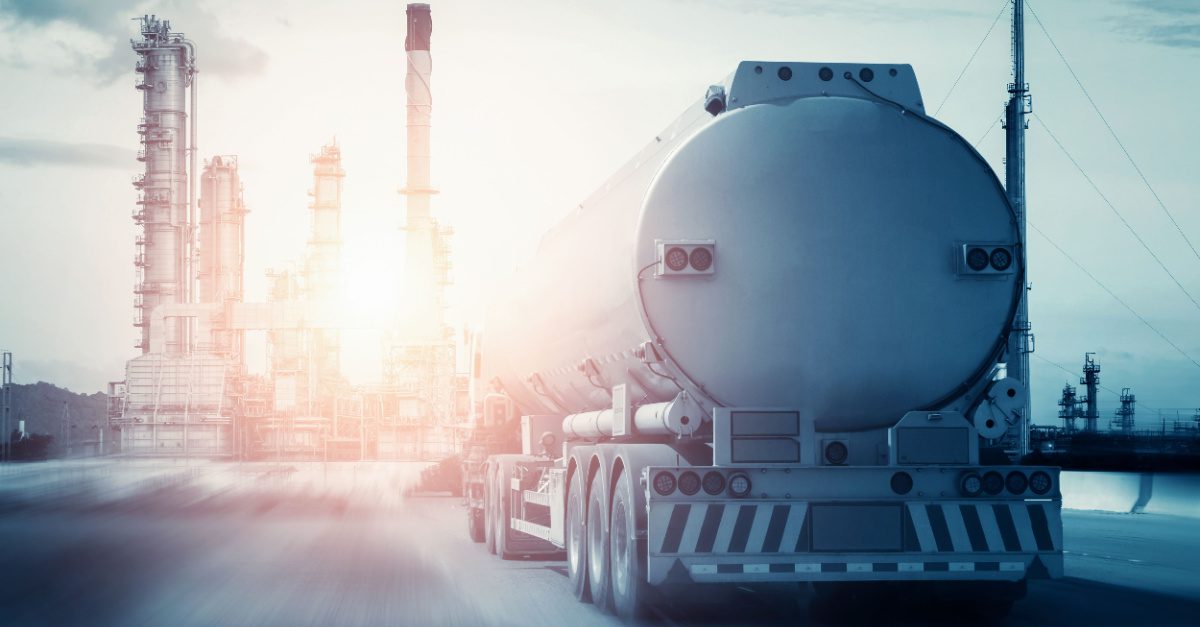Despite the global shift towards renewable energy, the oil and gas industry remains a significant player in the global economy. Even Elon Musk, a self-proclaimed environmentalist and electric car manufacturer, agrees that while reducing carbon emissions is critical, we cannot demonize the industry we heavily rely on.
Transporting oil and gas can be hazardous, as highlighted by a recent incident where a tanker overturned on I-95. This tragic event emphasizes the significant risks associated with transporting these materials. This article outlines key considerations and best practices for navigating transportation logistics in the oil and gas sector.
Understanding the Unique Challenges in Oil and Gas
Transporting oil and gas over the road necessitates managing the risks associated with hazardous materials, requiring compliance with specific regulations and safety protocols. Due to the logistical complexities of oil and gas demands, transporting fossil fuels and industry machinery requires specialized skills, equipment, and knowledge.
Regulatory Compliance for Transporting Oil and Gas
An extensive regulatory framework governs the industry, making staying informed and compliant with these evolving regulations challenging.
- Commercial Driver’s License (CDL) with Hazardous Materials Endorsement (HM): Drivers must hold a CDL with an HM endorsement and possibly other endorsements such as a “tank” endorsement. A CDL driver can earn their HM endorsement by passing the knowledge and skills tests. A driver must pass additional knowledge tests to drive a double or triple tanker.
- Entry-Level Driver Training (ELDT): As of February 7, 2022, CDL applicants must complete ELDT before administering any CDL or HM training.
- Insurance Requirements: Carriers must have specific insurance and legal process agent documents on file.
- Permits and Regulations: Carriers transporting certain types and amounts of hazardous materials must hold a Hazardous Materials Safety Permit (HMSP) issued by the Federal Motor Carrier Safety Administration (FMCSA). Carriers must have a “satisfactory” safety rating, comply with specific out-of-service rates and crash rate thresholds, have a satisfactory security program, maintain a Certificate of Registration with Pipeline and Hazardous Material Safety Administration (PHMSA), and meet other specific requirements, including communication systems, written route plans, and renew periodically.
- Record Keeping: Employers must retain training records during the entire tenure of that employee and 90 days after separation.
Specialized Transportation Needs for Oil and Gas
Oil and gas transport often require specialized equipment and carriers with specific expertise, making sourcing appropriate transportation solutions a significant challenge.
- Heavy and Oversized Equipment: Transporting oilfield machinery requires specialized methods such as flat beds and open deck trailers. These over-sized loads often require special permits and route planning.
- Temperature-Controlled Transportation: Some products, like certain chemicals used in oil and gas operations, need temperature-controlled environments during transit.
- Safety Equipment and Protocols: Carriers must have the necessary safety equipment, permits, and escort vehicles and adhere to stringent protocols to transport hazardous materials safely.
- Experienced and Skilled Personnel: Skilled drivers and logistics personnel with specific industry knowledge are vital for handling the unique demands of heavy haul and over-dimensional.
- Technology Integration: Utilization of advanced tracking and monitoring technology to ensure real-time visibility and safety of the cargo.
Several factors compound the challenges beyond logistics and regulatory compliance. Environmental concerns, such as the risk of spills and their ecological impact, are crucial. Geopolitical dynamics, like trade embargoes, also play a role in influencing logistics and supply chains.
Best Practices for Effective Oil and Gas Logistics Management
At LGI, our years of experience in gas and oilfield trucking have given us opportunities to refine the art of moving fuel and machinery across North America efficiently and reliably. We pride ourselves in expertly managing the transport of complex items like frac tanks, well heads, and compressor packages.
Our experience taught us that oil and gas transportation requires more than just expertise in logistics; it demands a strategic approach. In the next section, we delve into the best practices we follow at LGI, focusing on safety, efficiency, and sustainability to manage this sector’s unique challenges effectively.
- Tailored Logistics for Complex Cargo: LGI’s experience in customizing logistics for intricate and over-dimensional oilfield equipment, ensuring precise and safe transport.
- In-depth Operational Planning: Emphasizing the significance of meticulous planning and coordination throughout transportation, from loading to delivery.
- Rigorous Safety Measures: LGI upholds strict safety protocols and regulatory compliance, especially when transporting hazardous materials for the oil and gas industry.
- Technology-Driven Operations: Leveraging the latest technologies for efficient tracking, monitoring, and managing the logistics of oil and gas products.
- Strategic Route and Load Management: Expertise in optimizing routes and load handling to enhance efficiency and reduce transportation costs.
- Specialized Equipment Handling: Proficiency in transporting specialized equipment like frac tanks and pump jacks, ensuring their safety and integrity.
The complexities inherent in oil and gas transportation underscore the importance of partnering with logistics providers with deep industry knowledge and experience.
Partnering with Industry Experts for Success
As the oil and gas industry continues to navigate its unique challenges, the value of partnering with logistics experts becomes increasingly apparent. We have over 21 years of experience in heavy haul, oil and gas, and cross-border transportation and are well-positioned to offer specialized knowledge and solutions. Our expertise in handling the intricacies of oil and gas logistics ensures we manage shipments effectively, efficiently, and safely.
For oil and gas shippers looking for a reliable logistics partner, LGI offers a blend of experience, technological innovation, and commitment to safety. Contact LGI to explore how we can support your oil and gas transportation needs.
